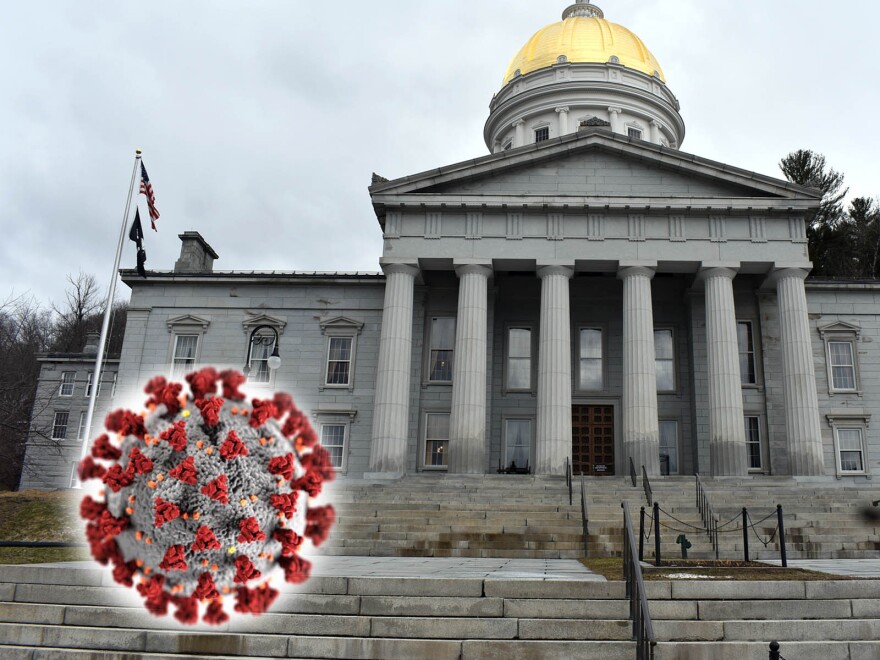Vermont Governor Phil Scott says COVID-19 cases in the state appear to be leveling off, but it’s still too soon to lift social and economic restrictions.
Last week, Vermont’s Republican governor extended his stay at home order and mandate that all non-essential businesses stay closed through May 15th. President Trump has been hinting he will move to open the country by early May despite numerous governors’ executive orders to the contrary. Scott says he will do everything he can to protect Vermonters. “It didn't take federal action to spur us into action. And it's not going to be the federal government that's going to determine when we take appropriate steps here in Vermont. As we watch the data, I listen to the experts and we see the trends we'll take those steps. Because again I want people to get back to work. But to pick an arbitrary date I think is irresponsible. I might give some people hope but if we have a false start and people go back to work and then all of a sudden everything spikes and gets out of control and we have to take and shut the spigot off again there's going to be a lack of confidence in government. And I think at this point in time we want to make sure that we're doing it for the right reasons and doing it again in a responsible way.”
Vermont Health Commissioner Dr. Mark Levine reported that the number of new cases of COVID-19 per day appears to be diminishing. “We seem to be approaching, if you will, a plateau. We'll see if that is a sustained phenomenon or just a trend over several days. But the important thing to note is that we are, in the general population of Vermont, not recording major outbreaks or spikes in our data. We have in our vulnerable populations, whether they be housed in a long-term care facility, a nursing home or in one case a correctional facility outbreaks that are noteworthy. But I think we wouldn't be seeing this type of experience in the general community if the strategies that have been employed to date were not successful.”
There has been speculation about testing blood for COVID-19 antibodies, also known as serology testing. Dr. Levine announced that over the weekend he appointed a working group including infectious disease clinicians, primary care physicians, laboratory and public health surveillance experts to report by Thursday regarding the efficacy of available antibody tests. “The task is to assess the performance characteristics of the tests that are available out there, to come to a conclusion about the most appropriate timing of using these tests and to make sure that they can recommend the most appropriate use, the kinds of criteria if you will, that we might set for using such a test.”
Levine expects antibody tests will be part of future strategies. “Right now at this stage of the pandemic it's much more important for us to know who is actively infected using the PCR (polymerase chain reaction) test from the nasal swab. The serologic testing front should focus on accuracy of the tests and identifying their role over time. At this point in time we cannot and will not abandon the containment strategy.”
On Monday, New York Governor Andrew Cuomo announced a multi-state northeast council of governors that will take a regional approach to restoring the economy. Vermont has not yet joined the coalition. In an email to WAMC, Governor Scott’s spokesperson notes that he is willing to share best practices and writes Scott is “…always open to a regional approach if it will benefit Vermonters and create consistency.”



